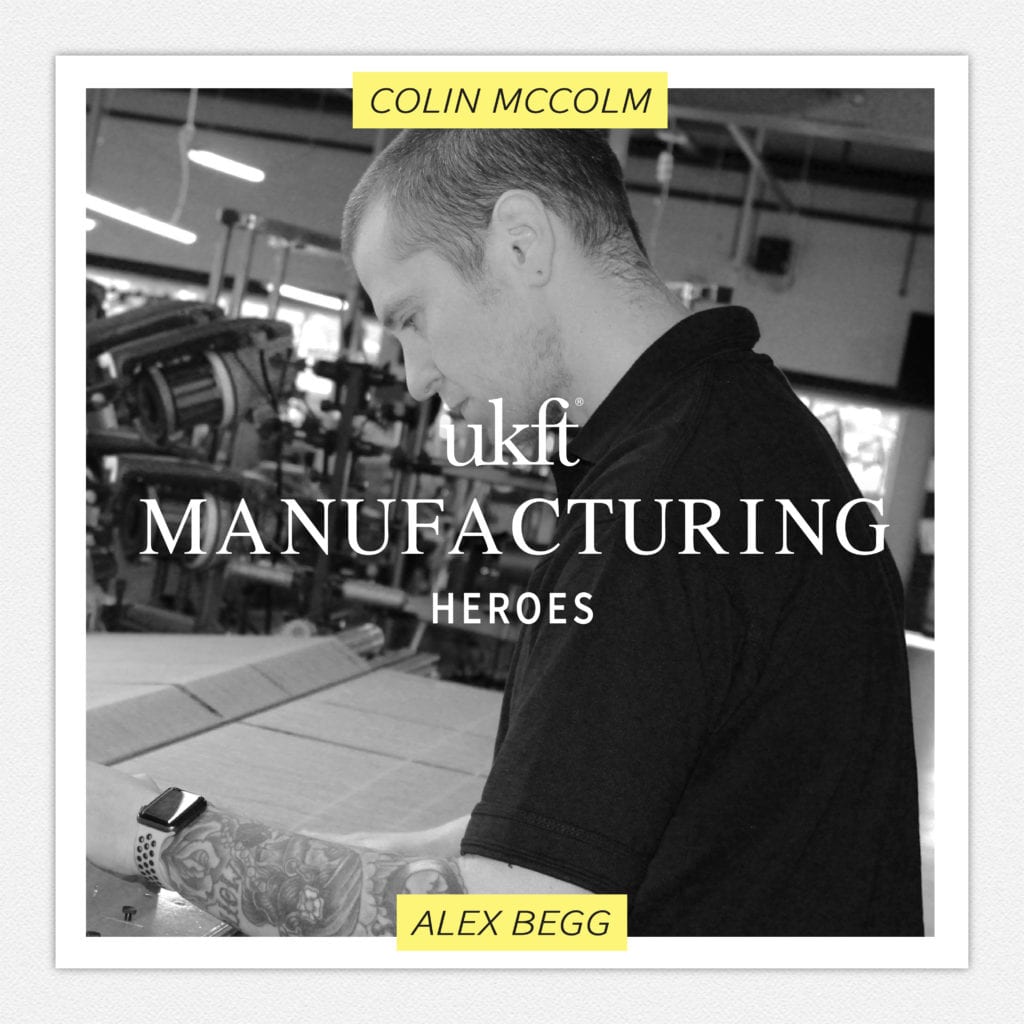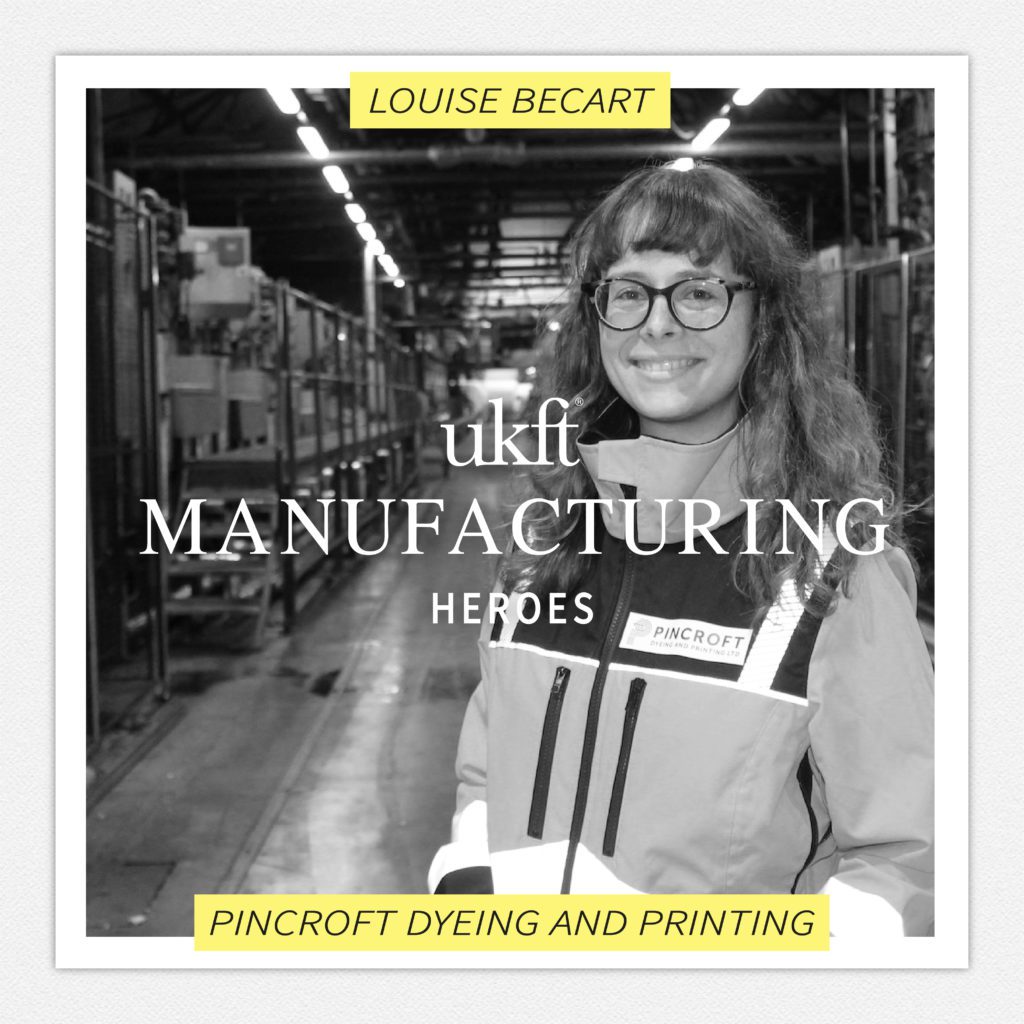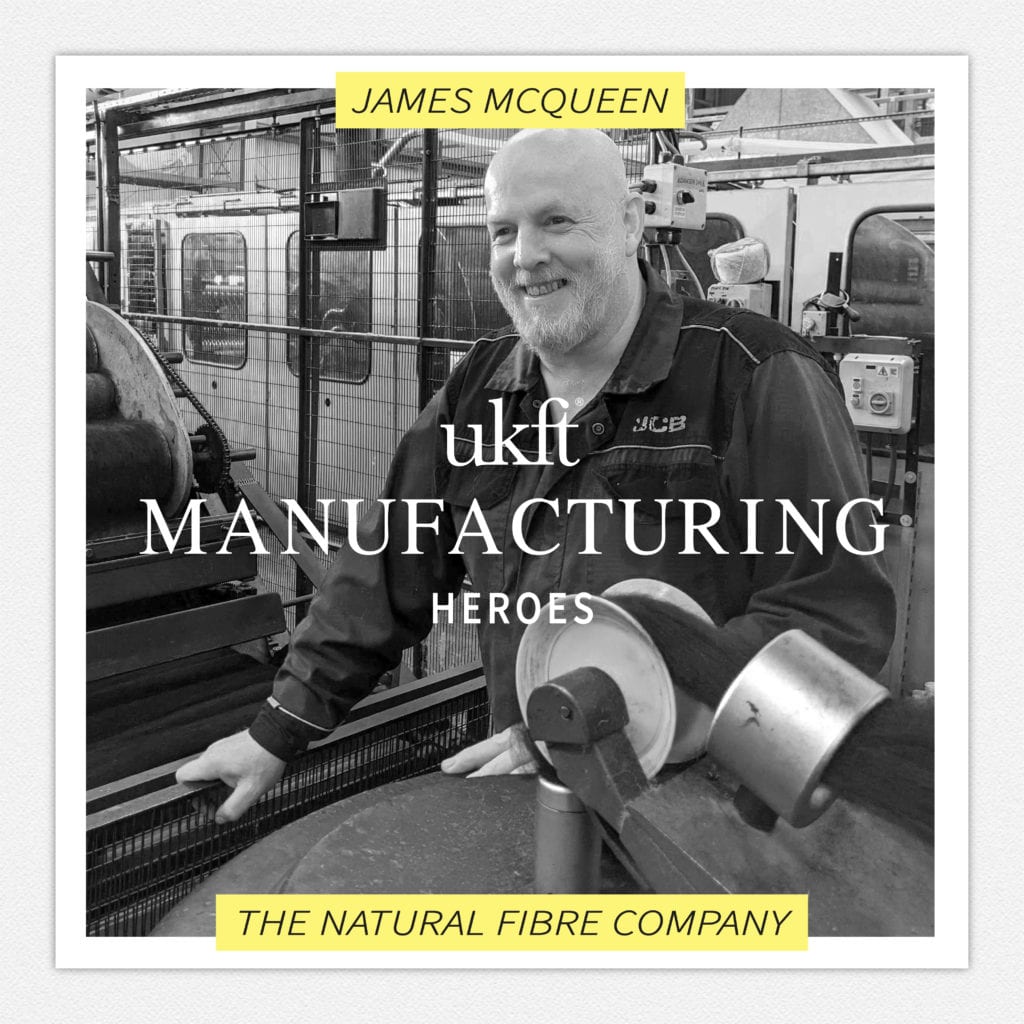Where could a career in UK textile manufacturing take you?
24/08/2021
The UK produces a wide range of textiles for fashion and interiors, as well as applications in the industrial, protective, medical, automotive, packaging, sports, building and agricultural sectors. Careers in the UK textile manufacturing industry encompass dyeing, finishing, spinning, knitting and weaving roles, as well as positions people may never have heard of such as a beamer, blender, carder or cutter.
A job in the UK textile manufacturing industry won’t just be a job. It’s a rewarding, technical or creative career with opportunity to grow.
Find out what these skilled people love about working in the UK textile manufacturing industry here…

Adam Pursell is Head Dyer at D. P. Dyers based in Honley, West Yorkshire, a commission piece dyer which specialises in dyeing natural and synthetic fabrics used by global luxury brands, independent designers and high street retailers. Fabrics dyed at D. P. Dyers are used in iconic products all around the world.
“My role as head dyer means having my fingers in many pies,” he explains. “You have to be thinking of everything that comes in through the door because all aspects impact the job from fabric, water, dyes, chemicals, machinery, and people. It’s a problem-solving job and although the end result is often the same, every day there are new challenges which keep you on your toes.”
He adds: “I didn’t know jobs like this existed before I started, but it is a great industry to be part of. We’re seeing lots of companies reshoring production to the UK and the made in Britain brand is strong. A lot of firms are waking up to the benefits of UK production as we can often produce quicker than overseas, we can be more flexible and transparent.”

Colin McColm joined Alex Begg five years ago, working firstly in the warehouse before taking up the role of knotter, a critical role in the production of luxury woven accessories.
He says: “I love knowing there is someone wearing a scarf that I have a hand in making. Sometimes we see celebrities wearing them. There was a picture of David Beckham sat on the couch with his dog under one of our throws – that was one I sent round to my friends. It’s amazing to know I have been part of creating that.”

Louise Becart is a project engineer at Carrington Textiles’ main production facility Pincroft. Since joining Pincroft in 2016, Louise has applied her analytical skills to effectively reducing value loss across the Lancashire-based textile converting business and implementing process driven improvements. Recently, she has created visual tools and improved data capture to identify value added opportunities.
“I like the variety of my role and being exposed to the different areas of the business, which allows me to get an understanding of each area and how the business functions and thrives,” she says. “My geeky side also really enjoys the number crunching and diving in to the data to find solutions. It is always fast paced and there is always something happening.”
“It’s an exciting time for the textile industry which is changing a lot. The industry is trying to renew itself with new machinery and new processes in technical textiles and beyond. It’s fascinating to be a part of it.”

James McQueen is an experienced carding engineer working at The Natural Fibre Company in Cornwall, a leading natural fibre specialist providing support to local farmers and yarn producers. There is a huge shortage of skilled carding engineers in the UK, which means people like James are in high demand.
The Natural Fibre Company is one of only a handful of mills worldwide that processes yarn in small quantities for craftspeople and small businesses. It specialises in blending high quality regional and rare wool, mohair and alpaca with natural fibres such as silk and linen, with a 20 strong, highly skilled, local workforce.
He most enjoys making a viable product from something that would have otherwise been discarded. “I love that I can make a decent yarn from something that could have been burned,” he explains. “There is satisfaction in that. And from hearing the response from customers, they sell well and keep coming back.”
He is also proud to be part of a historic industry that has adapted to stay relevant in today’s fast-moving market.
“When I started out in this industry, there were a lot of mills but now there are a handful doing anything like what we do. It’s a niche business but as manufacturing has moved offshore, we offer something different. If you can do something they can’t do in China or India, then you’re onto a winner. There feels like there is a lot of opportunity ahead of us as we have the experience of knowing what is going to work.”

Euan Dalgliesh is the assistant manager at the weaving mill of Macnaughton Holdings, a family-owned company founded 1783 and based in the small town of Keith in the Scottish Highlands. He was born into the textile industry and gained a wealth of experience at firms including Gardiners of Selkirk (where he served his apprenticeship), Bridgehaugh Dyers, DC Dalgliesh and Locharron of Scotland before joining Macnaughton in 2014.
“I like working in this industry because there is always something different: you can be working with different qualities or working with different designs and challenges,” he says. “You have to come in here and know that you can’t know everything. I have been in this industry for 30-odd years and I’m still learning and picking up new things. If you come in with an open mind, it’s great.”

Jackie Dean is a raw materials technician in quality assurance at Johnstons of Elgin, in charge of fibre testing of all the company’s cashmere and wool. She is known in the industry for being extremely precise and well respected for testing, which is largely done by hand and eye.
“There’s a lot of work that goes into making one product,” she says. “It’s great to be part of the process. We have a design showroom and store on site here in Elgin so you get to see the products a lot. We also have customers [from luxury brand partners] who come to visit. When they have a mill tour, they come in to see what I do – they take pictures, which I dread – but they also ask a lot of questions and are interested in the raw materials, which is satisfying.”
